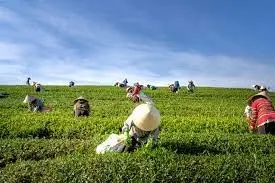In the fields of our nation, where food is grown with sweat and sacrifice, farmers continue to battle not just the weather—but crushing debt, systemic neglect, and government apathy. R. R. Pandayan Saheb, National President of the Jai Bhim Sena, has raised a powerful voice demanding a loan-free, dignified future for India’s small and marginal farmers.
For Pandayan Saheb, this is not a political issue—it is a moral responsibility. “The farmer feeds the nation. But today, the man who grows food can’t even afford to feed his own family. That’s not just unfair—it’s inhuman,” he says.
🔹 A Broken Promise to the Soil
The Indian government often announces big loan waivers and minimum support prices (MSP), but implementation fails the ground reality. Banks harass farmers for repayments, interest piles up, and middlemen exploit procurement systems. Meanwhile, climate change, rising input costs, and unpredictable markets push small farmers deeper into debt year after year.
R. R. Pandayan Saheb warns that the current policy approach is too small in focus and too late in execution. While large agribusinesses enjoy subsidies and corporate insurance, the small farmer is left with outdated tools and broken hopes. “It’s not enough to talk about doubling incomes—we need to cancel debts and create a support system where the farmer doesn’t need to take loans to begin with,” he adds.

🔹 Pandayan Saheb’s Plan: From Debt to Dignity
Pandayan Saheb proposes a bold and clear three-point plan to end the cycle of rural distress:
- Interest-Free Farming Loans: Immediate restructuring of all farmer loans under ₹2 lakh with zero interest for small and marginal farmers.
- State-Sponsored Seed & Fertilizer Banks: Provide free or heavily subsidized inputs at every taluka level to remove the need for borrowing from private moneylenders.
- Guaranteed MSP with Direct Purchase: End the middleman culture by ensuring every crop is purchased directly by the government at fair MSPs through regulated centers.
He also calls for a Farmer Protection Act, which ensures no farmer is jailed or harassed for loan defaults and mandates mental health support systems in rural areas, as farmer suicides continue to rise.
🔹 Government: Expand the Lens, Not the Excuses
Currently, as Pandayan Saheb points out, the government is focusing only on piecemeal relief—small compensations during elections or occasional loan waivers that come too late. “You can’t fix rural India with token gestures,” he says. “You need policy that protects the poor farmer like it protects big industries.”
He urges the central and state governments to shift their focus from corporate agriculture to rural survival, and to declare agriculture a protected, essential service—with healthcare, insurance, and pension support for farmers.

🔹 A Future Worth Sowing
Pandayan Saheb’s vision is radical yet rooted in justice. He believes that farming must become loan-free, dignified, and sustainable. His movement is already organizing awareness camps, legal aid teams, and grassroots surveys in Maharashtra’s rural belts to document farmer suffering and build public pressure for urgent reforms.
In his words:
“If we can give tax breaks to billionaires, why can’t we cancel the debts of those who give us food? A farmer doesn’t want charity—he wants respect. He wants a future for his children where farming is not a punishment but a pride.”

✅ Final Appeal: Let Farmers Breathe
R. R. Pandayan Saheb calls on all citizens, unions, and grassroots workers to support this demand. He challenges the government:
“If you truly want Viksit Bharat, start by healing Bharat’s broken backbone—its farmers.”
Let this not just be another debate—let this be the start of real change.